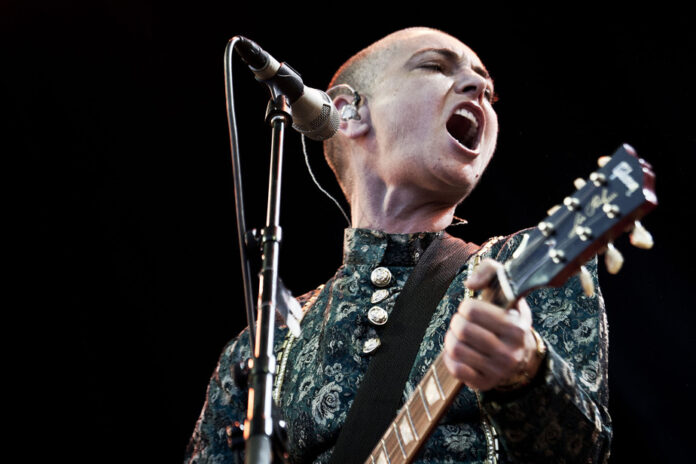It was hard enough to listen to Sinéad O’Connor sing Nothing Compares 2 U without suddenly having dust in each eye. Her song, so powerful and yet enveloped in such sweetness, has been going around in my head since I read the news: Sinéad is dead. His relatives, devastated, made the announcement on Wednesday. She was 56 years old.
The cause of his death is not known at the time of this writing. I imagine the worst. Surely there will be people callous enough to say that his untimely demise was foreseeable. Sinéad did not hide his mental health issues, it’s true. She was also interned after the suicide of her son Shane in January 2022, saying she also wanted to end her life. That doesn’t make his death any less tragic.
She hasn’t had it easy, Sinéad. Raised by an abusive mother – “a beast”, she says in a recent documentary by Kathryn Ferguson – she was also abused in one of those convents in Ireland where “lost” young girls were locked up. . Institutions now recognized as places where children were victims of sexual abuse and other forms of violence.
Sinéad will oscillate throughout his life between these two poles: on the one hand, the injured child, on the other, the rebellious woman. Two extremes that also characterize his singing, able to go from shout to whisper, this unique, visceral tone, which knows only one way: the one that goes straight to the heart.
This disturbing duality was already very present on The Lion and the Cobra, the disc which revealed it in 1987, and which capsized the teenager that I was, magnetized at the same time by its beauty (his shaved head, his piercing gaze) and his unique voice. She was still on I Do Not Want What I Haven’t Got (1990), a disc on which we find Nothing Compares 2 U, a song by Prince, whose success will make him an international star.
Sinéad also took over All Apologies from Nirvana with even more fragility than Kurt Cobain, illuminated Peter Gabriel (Blood of Eden), bewitched Jah Wobble (Visions of You). Above all, she charted her own path. His love songs, or rather breakup songs, are unlike anyone else’s. Often incantatory (Troy, The Last Day of Our Acquaintance, Thank You For Hearing Me), they bring to light the cocktail of depression, rage and extreme fragility that pierces the soul when love is torn from us.
And while music has been a form of therapy for her, she hasn’t made her songs revolve only around her own flaws. An anti-racist (Black Boys on Mopeds) and feminist (No Man’s Woman) activist, she has also sought to transcend some of the traumas experienced by her people (Famine, on Universal Mother) and looked at her fellow human beings with empathy.
In the coming days, we will often see images of Sinéad tearing up a photo of the pope live on American television. Few will bother to recall that it was a way for her to both protest against the anti-abortion stance of the Catholic Church and to draw attention to the sexual assaults perpetrated by her priests. in Ireland, the United States and elsewhere.
Over the next few days, we will remember how difficult his life was and how difficult it was to follow. It’s true. I spoke to her only once, in the early 2000s, shortly after she had been ordained a priest in a sectarian branch of Catholicism. She had just released a magnificent album of covers of traditional Irish songs entitled Sean-Nos Nua.
I had written that she was the most influential and “most authentically fucked” Irish singer. Three words I regretted and still regret. They say the opposite of the admiration and respect I have for her, for her sensitivity, for her courage, for her integrity, for the authenticity and vulnerability that she was able to put into songs that always put me upside down decades later.
Sinéad was suspicious of journalists. With reason. She had spoken mechanically throughout the interview. Which, curiously, did not make her less sensitive. Speaking of the traditional tunes she had chosen, she said, “These songs are delicate and full of ghosts. They refer to real people, many people speak through them and to interpret them fairly […] you have to put aside your personality and let the ghosts speak. »
Sinéad, the most tender and the most boiling of Irish singers, is dead. And I can’t believe his voice will be that of a ghost now. Listening to Nothing Compares 2 U without shedding a tear was already impossible. What will it be now?















